A SUSTAINABLE FUTURE
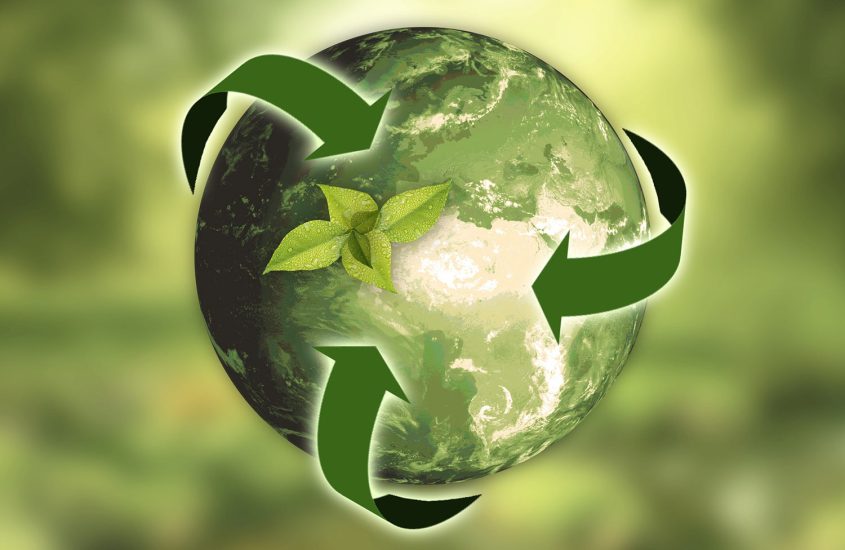
Climate change and the need for energy efficiency and reduction in carbon emissions are things we are all painfully aware of. And they’re things that are too important to be left solely to government, we are all responsible for our own behaviour. It’s easy to think of Bahrain as being a little backward when it comes to environmental concern. But the truth is that the Kingdom has quietly been making behind-the-scenes efforts for many years, in public and private sectors alike. Here we take a look at some of those initiatives and also offer some great individual tips on how you can get involved.

What The Government Says
At the 26th United Nations Climate Change Conference of the Parties (COP26), His Royal Highness Prince Salman bin Hamad Al Khalifa, the Crown Prince and Prime Minister, delivered a speech, one of the major highlights of which was the Kingdom’s commitment to sustainability and protecting the environment. Despite being responsible for just 0.07% of the global emissions, Bahrain recognises that climate change is a global challenge, which requires global solutions.
The Government stated its commitment to reaching net zero by 2060. In the interim, it will also pursue a series of goals: reducing emissions by 30% through decarbonisation and efficiency initiatives, and increasing the use of renewables to twice the target set during COP21. This would also include quadrupling mangrove coverage, doubling tree coverage and investing in carbon capture technologies.
The Kingdom was also among the 47 countries that committed to developing climate-resilient, low-carbon health systems, which means a health system that is able to anticipate, respond to, cope with and recover from climate related shocks and stress that make sustainable improvements in the health of people.
Additionally, Bahrain pledged its support for four key international climate change initiatives, which focus on green government operations, protecting the oceans and marine life, cutting down global methane emissions and a joint action – sharing know-how and multilateral cooperation – to achieve net-zero emissions.

Sustainable Urbanisation
UN-Habitat Bahrain is the recently established local chapter of a United Nations agency focused on sustainable urbanisation. This month, it will observe Urban October, a 31-day initiative promoting ‘a better urban future’. It begins with World Habitat Day on October 3 – the first Monday of the month – which will be hosted in Turkey this year under the theme: Mind the Gap. Leave No One and No Place Behind. There will be speakers and roundtable discussions focussing on the problem of growing inequality and challenges in cities and human settlements. Urban October ends with World Cities Day on October 31, which will be held in China under the theme Act Local to Go Global. Partners and diverse stakeholders will come together to share their experiences and approaches. Throughout this period, all stakeholders from the government to universities, NGOs and communities are being encouraged to conduct or participate in activities, events and discussions. UN-Habitat Bahrain will be organising a series of events promoting the sustainable urban future of Bahrain in collaboration with Manama Shapers, details for which are yet to be announced. Follow @UNHabitatBH on Twitter for information on what’s planned.
Clean Energy
The Kingdom is making an effort to incorporate sustainable sources into its energy consumption. The government’s Sustainable Energy Unit (SEU) was established in 2014 to develop policies and promote renewable power and energy efficiency in the Kingdom. Since its establishment, it has developed two key policy documents: the National Energy Efficiency Action Plan (NEEAP) and the National Renewable Energy Action Plan (NREAP), which are currently in the implementation phase. As part of the NREAP, the net-metering system was established. Under it, individual households and companies can install renewable energy systems, especially solar PV cell systems on their property, to generate energy supply. The benefits are mutual: the national grid receives an enhanced energy supply while the provider receives a financial credit. It was a significant step because it’s an inclusive policy that synergises the efforts of the community as a whole.
On a commercial level, we reported earlier this year that Imerys Al Zayani Bahrain, Yellow Door Energy and Midal Solar have partnered to reduce carbon emissions through a 4.7-megawatt solar project to install more than 8,500 solar panels at the Imerys white fused alumina production plant in Bahrain, which is operated alongside Bahraini partner Al Zayani Industries.
Covering an area of 25,000sq/m, the solar plant will generate 7,600 megawatt-hours of clean electricity in the first year of operation and it is expected to be online by 2023.
Bahrain’s Ministry of Electricity and Water Affairs also recently floated a tender to construct solar panels at Bahrain International Circuit, the University of Bahrain, Bahrain International Exhibition & Convention Centre and Al Dana Amphitheatre.
And Pavilion Renewables Group, a leading global provider of energy solutions, water treatment and decarbonisation, which has its headquarters in Bahrain provides small- and large-sale installations across the Kingdom – most recently installing wind turbines and solar panels on the roof of The Westin and Le Méridien Hotels.
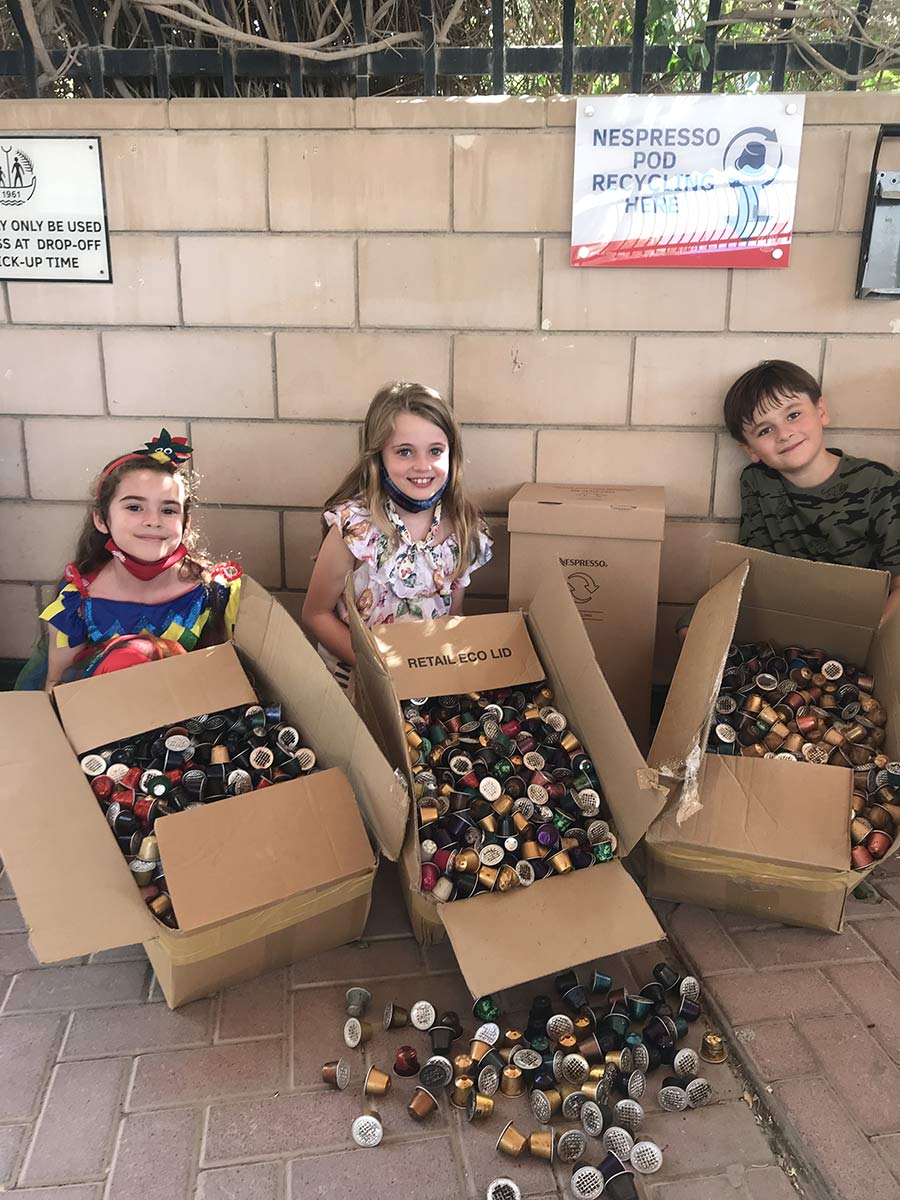
ECO-SCHOOLS
Eco-Schools is the largest global sustainable schools programme – it starts in the classroom and expands to the community by engaging the next generation in action-based learning.
While Bahrain doesn’t currently have any schools officially recognised, the country’s educational establishments are certainly doing their bit. One school that hit our radar for its wide-ranging actions is St Christopher’s which has a well-established Eco Group which organises initiatives such as tree planting, waste food collection – with the unwanted food going to feed animals at Roots & Shoots organic farm and also being used to make compost – and recycling. In fact, pupils were so concerned about the environmental impact of coffee capsules that they contacted Nespresso, which has arranged for these to be recycled!
Also, the American School of Bahrain has established The Eco Team, a service-learning extra-curricular activity. The students involved are all passionate about making a difference in the world. They have begun to identify environmental issues that they would like to resolve, but they need to go through a learning process to ensure that their final action is powerful and effective and they have so far identified the issues of waste – from single-use plastic to food and energy – to unsustainable transport practices.
A school spokeswoman said: “I can’t wait to see where the Eco Team takes their learning journey and what great changes they achieve for the health of the planet and all of us.”


Raring to Recycle
Unless you’ve been living under a rock, you will have noticed recycling bins installed across various locations in the Kingdom, including in the malls for the collection of plastics and other materials. The eBin Company is a one-stop-shop for all your recycling needs. You can book their collection service for a nominal fee every Saturday (for individuals and households) and every Tuesday for corporates. Alternatively, you can drop off the collection at their facility behind Alba. If you have any queries on the correct way to segregate items, types of waste, etc., they have a dedicated Whats App number, 3407 1010, on which they will guide you. Additionally, they have recycling bins and garbage bags that you can purchase. Companies can also avail of their corporate packages to install recycling bins. Bahrain Contract Cleaning also has an extensive network of bins installed at various locations on the island. Find out where they are at www.recyclebahrain.net
Pledge Against Plastic
Following an announcement by the Ministry of Industry, Commerce and Tourism earlier this year, a ban on single-use plastic came into force from September 19. Under the ban, plastic bags under 35 microns in thickness, those that you get at cold stores, for instance, are not permitted. However, bags used for medical purposes and those manufactured for export are exempt. The move has been welcomed by environmental groups and activists but there is some concern over how it will be enforced. Supermarket chains such as Alosra, Aljazira and Lulu have taken the initiative by designing their own re-usable bags and some also offer multiple use produce bags to save plastic wrapping on fruit and vegetables.

Plant Power
In October 2021, a national afforestation campaign, Forever Green, was launched under the patronage of Her Royal Highness Princess Sabeeka bint Ibrahim Al Khalifa, Chairperson of the Consultative Council of the National Initiative for Agricultural Development (NIAD), in cooperation with the Ministry of Works, Municipalities Affairs and Urban Planning, and the Supreme Council for Environment. One of the aims of the campaign was to increase green spaces in the Kingdom. NIAD collaborated with various companies, even schools. The campaign’s first phase ended earlier this year in June, witnessing the planting of nearly 49,000 trees and shrubs across multiple sites in the Kingdom. In the same month, at the 11th session of the World Urban Forum in Poland, held under the patronage of the United Nations Human Settlements Programme (UN-HABITAT), Joint Municipal Services Assistant Undersecretary, Shawqiya Humaidan reviewed Bahrain’s strategic afforestation plan. It was pledged to double the number of trees in Bahrain from 1.8 million to nearly 3.6 million by 2035.
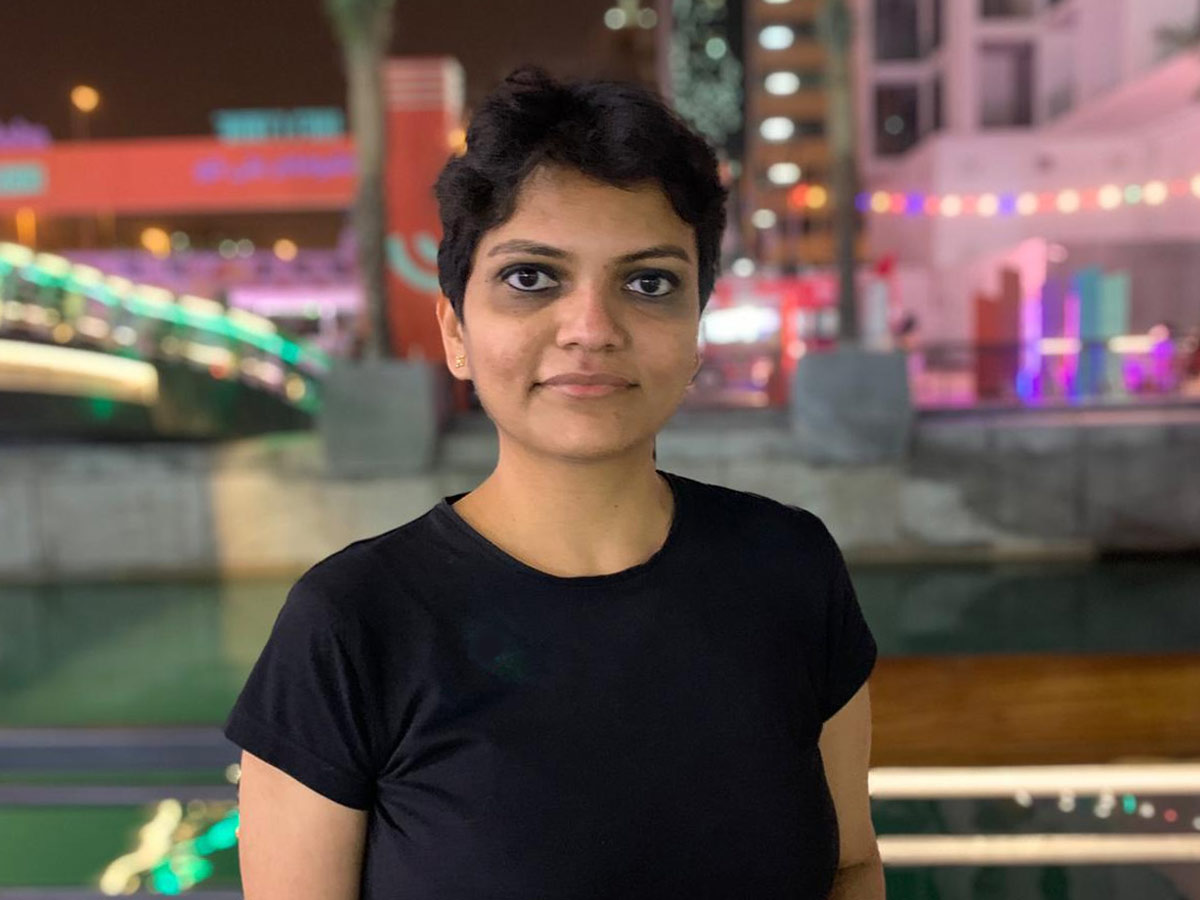
INDIVIDUAL INITIATIVE
Young activist Joylyn Fernandes explains the initiative she launched to cut waste across the Kingdom.
“Sustainable Living Bahrain is something I started in hopes of helping people in Bahrain live more sustainably. I’ve always been into trying to live in an eco-friendly way. Since I came to Bahrain, I have met a lot of likeminded people who were doing their best to live sustainably. I noticed people posting on social media groups asking for leads on repair outlets and realised that I could help by compiling a list of such options. And, since social media content creation is something I’m good at, I decided to use my strength to start this initiative as a way of giving back to the community.” Next year, Joylyn hopes to launch an online directory of outlets where people can get household items repaired, rather than just buying new, and she is urging people to send information to her on Instagram or Facebook @sustainablelivingbh
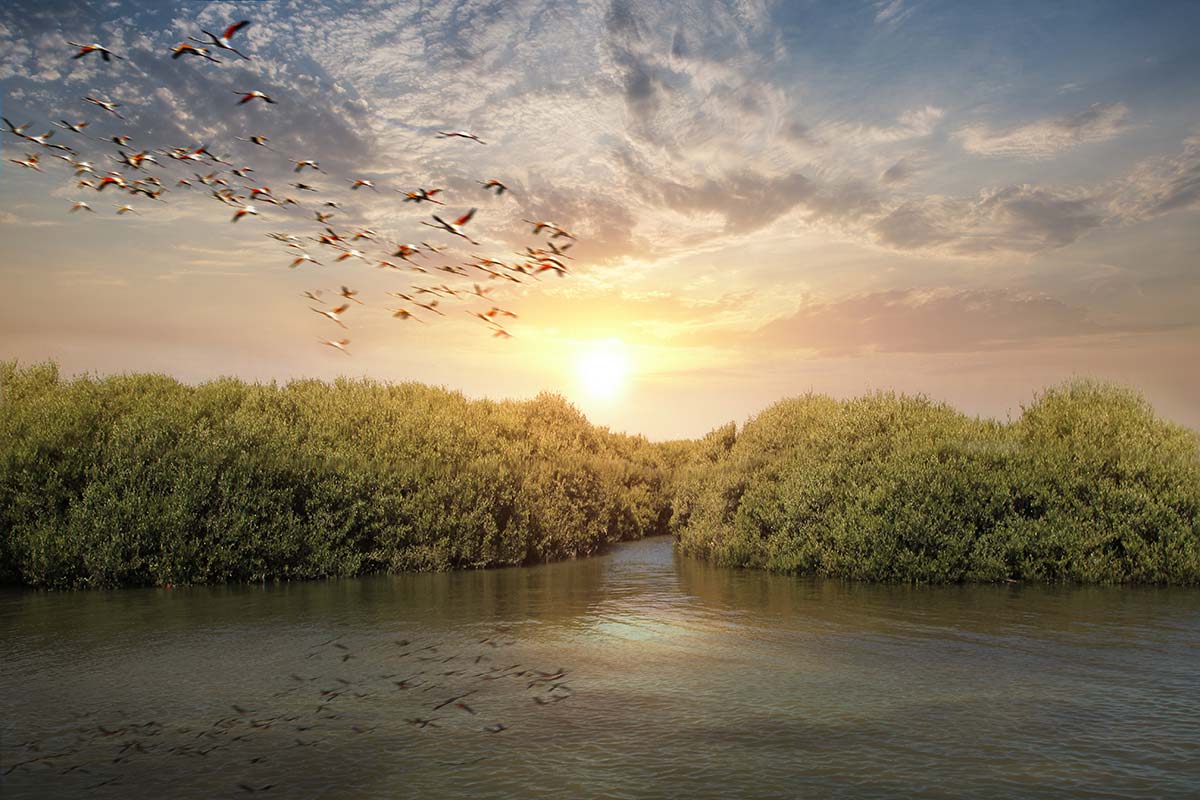
Ecotourism
Bahrain has increasingly grown in popularity as a tourist destination over the last few years, from emerging as a wedding hot-spot to hosting international celebrities. Taking its tourism goals a notch higher, the island is making efforts toward ecotourism. A major step in this direction comes with the Mantis Bahrain Hawar Island resort that is expected to open its doors in the near future. It’s a unique eco-tourism project in partnership with Accor, comprising overwater villas, a wildlife sanctuary and an on-site adventure park. Some of the features will include 72 rooms, five dining outlets, a bike track and a helipad. Mantis is a leading conservation-focused hotel group which will, it’s said, bring its sustainable ways to this project. Waste management, reusing biodegradable food waste, reducing water and energy consumption through the latest technologies… In addition to this, Edamah, or Bahrain Real Estate Investment Company ,has another project under its belt with a sustainability touch – Bilaj Al Jazayer. It’s said that the beachfront development will use green and clean technologies, energy conservation technologies and solutions, water-recycling facilities and solar energy.

SUSTAINABILITY IN CAPITAL MARKETS
Bahrain Bourse incorporates sustainability in trading. As a member exchange of Sustainable Stock Exchanges, a UN partnership programme, it’s mindful of conducting business in a way that supports ESGrelated (environmental, social and governance) causes and activities. There are various steps Bahrain Bourse takes to ensure this. One is promoting collaboration, ESG research and supporting the development of sustainable financial products such as green bonds and ESG indices. Bahrain Bourse’s sustainability action plan is aligned with UN Sustainability Development Goals (SDGs) and Bahrain Economic Vision 2030.
GET INVOLVED
As well as Government and corporate efforts, you’d be surprised at how much difference individuals can make when they put their minds to it. We asked users of the British Mums Living In Bahrain Facebook group about the sustainability measures they take and they had plenty to say. Here are some of the best tips.
Amy Ostrasky Rozek: “I order cleaning products that are concentrated. For example, I buy foaming hand soap tablets that you drop in your foaming soap dispenser and just add water. They also have kitchen cleaner. I also use laundry detergent that is in a sheet format. This saves buying all those large jugs of detergent. And for clothing that goes in the dryer, I use wool dryer balls instead of dryer sheets.”
Tracey Ashall: “I think it’s about small habit changes that can make a big difference. For example, having reusable bags in the car to use for shopping, I have a coffee mug I reuse every day. I have my own cutlery at work that I use. It’s not easy here but if more people adopt small habits it will contribute to improvement of the terrible waste problem we have here.”



Inge Michiels: “Buy big bottles of softener and your favourite shampoo instead of several small bottles and water down floor cleaner, we all use too much. I like a nice coffee but refuse the pods, I still use simple old-fashioned ground coffee and it’s still the best too!”
Karen Andrews: “I joined an FB group called Sustain Bahrain where I get some great ideas. I’ve also started composting and will hopefully start a garden bed once winter comes. I’m an amateur gardener but trying to do my bit in that area.”
Fiona Watson-O’Hara: “We recycle as much as we can but wish it was curbside collection as I think this would make more do it. We now have a compost bin. We sell or reuse old clothes and make sure to switch off lights that aren’t in use.”
Perin Gems: “I do composting of all fruit and vegetable peels, coffee grains and tea, egg shell and nuts. So, nothing goes in the trash. Everything is composted and used in my garden. I make my own soaps, room fresheners, candles and sprays with essential oils.”
Melinda Eke: “In addition to most of the above, my husband and I try to repurpose as much as possible. He recently turned our 20-year-old wooden gate into a new barn door and table. I recycle old fabrics into patchwork quilts. We’ve just built an extension and used clay bricks for heat insulation and new insulation material for the roof.”
Lorraine Shirfield: “Grow my own loofahs (harvested 70 this year) and use the ones I don’t sell for charity for my dish-washing sponges – no more synthetics! Old T-shirts become dishrags. I bought a sewing machine to fix and/or create stuff. Unwanted clutter is rehomed not dumped in the trash. If I buy vegetables, I don’t use imported if I can avoid it and I use small appliances to save energy. ✤

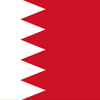
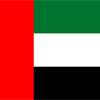



















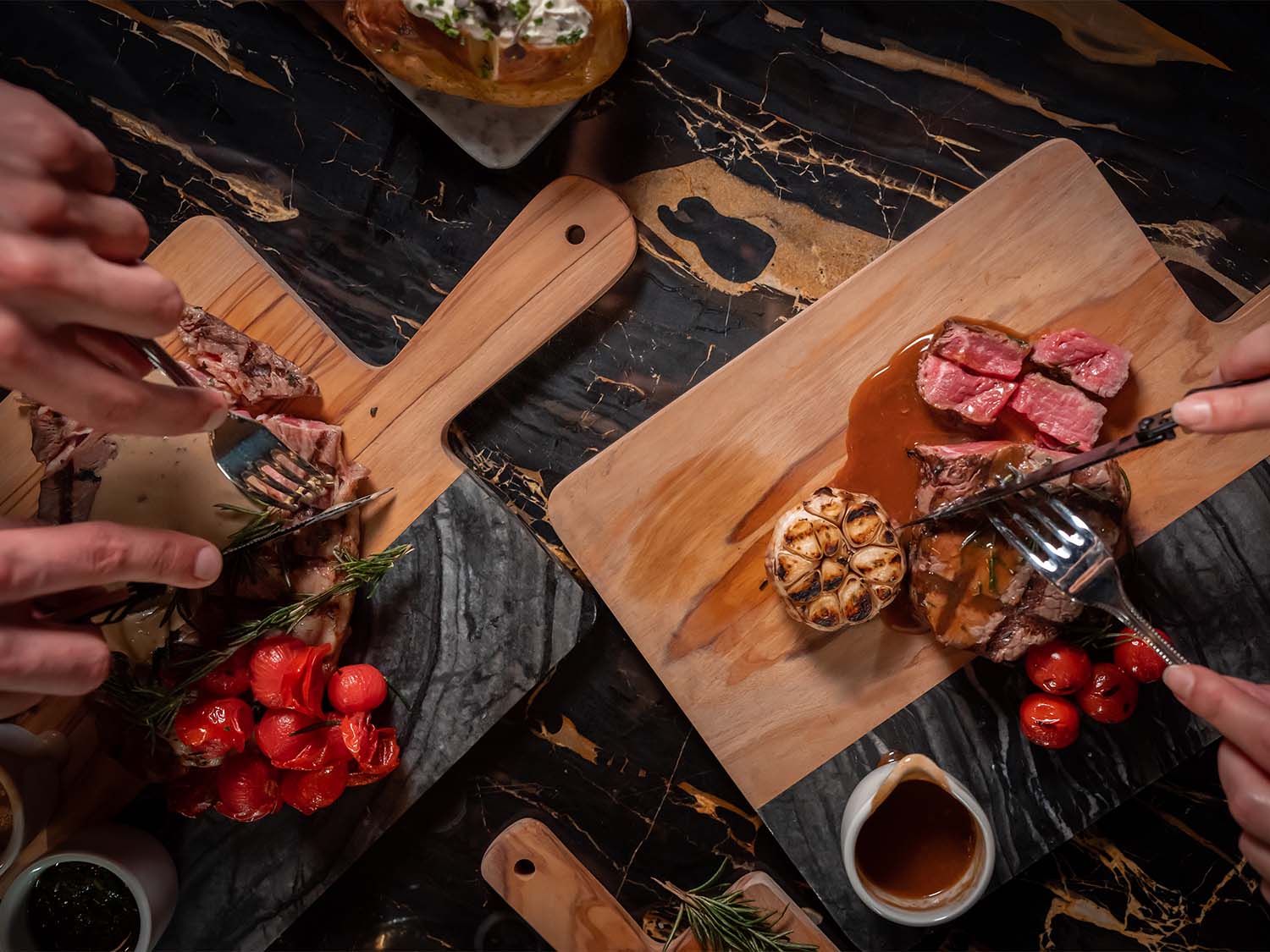
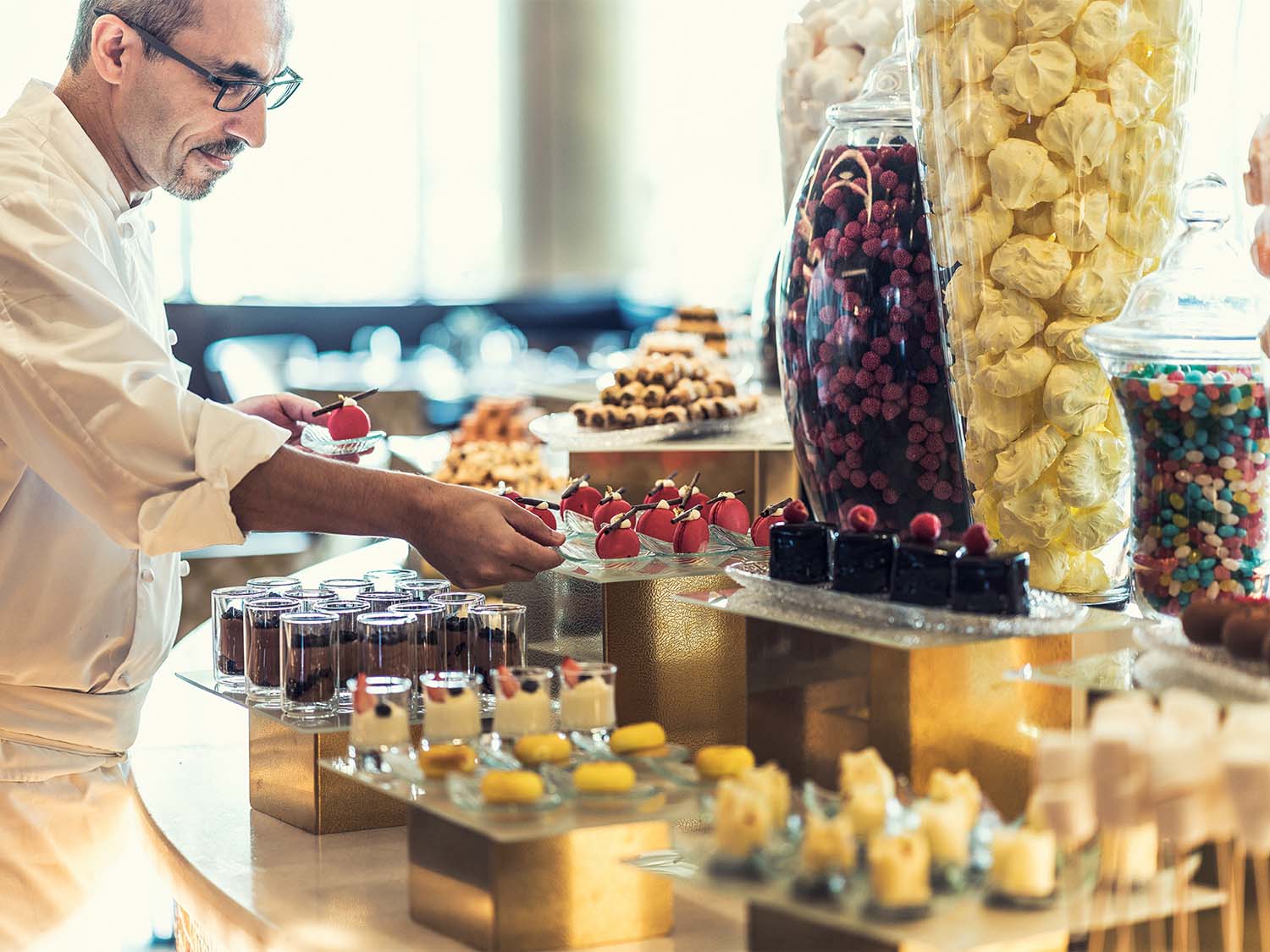




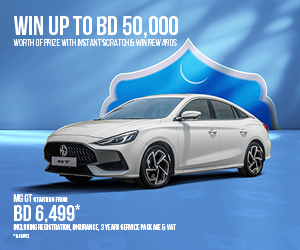
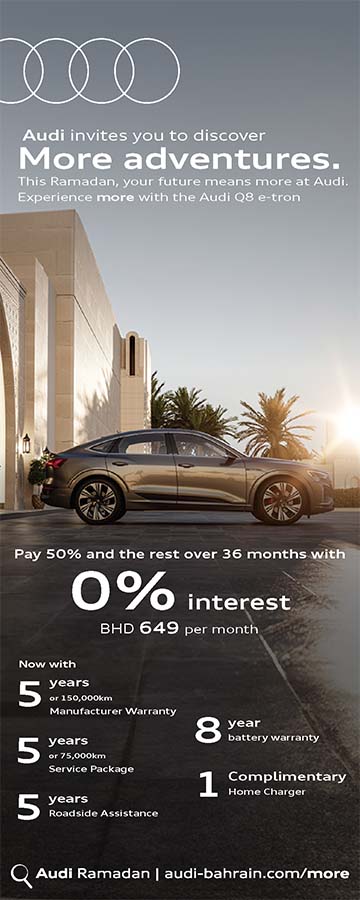
Comments are closed.